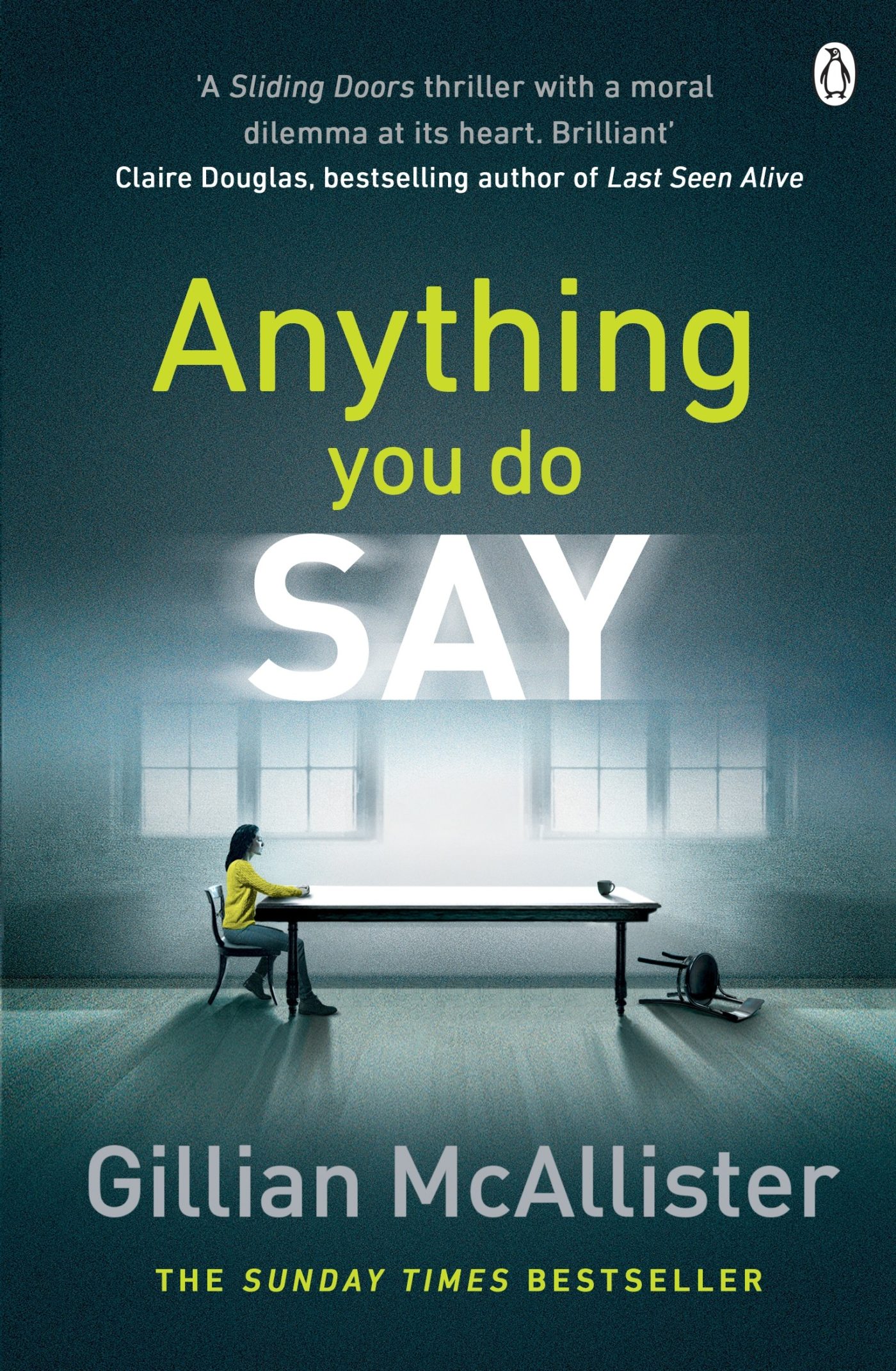Books
Gillian McAllister: what it’s like in police custody
Back in 2015, I had an idea for a Sliding Doors-style crime novel. What if you committed a crime on the way home from a night out, and had to make a decision as you stood over a body? What if, I thought, I wrote a book that showed both decisions? That was the seed that grew into Anything You Do Say, my second novel. My heroine, Joanna, is followed home from a night out. Just as her pursuer reaches to grab her, she lashes out, injuring him very seriously and disproportionately. As she stands over the body, it’s decision time.
I wrote it during 2016 and it quickly became clear that it was going to be a novel that required a lot of research. There’s a bit of medicine, and there’s a bit of law, but the most important part, for me, was what happened to the heroine in the immediate aftermath of the crime. In one strand – Conceal – she goes on the run. But in the other – Reveal – she calls 999, gets help for the man she has injured, and confesses to the police.
I prefer to write realistic fiction, and what I think is scariest about the scenario Joanna faces is that it could happen to anybody. I therefore wanted to show in forensic detail exactly what happens to somebody when they become a defendant and enter the justice system, and their normal existence ceases.
I’m a lawyer, so I’m lucky to be surrounded by useful contacts. A friend pulled some strings and got me a tour of Steelhouse Lane police station in Birmingham.
It was a rainy Wednesday morning when we met. I was working full-time, back then, and so I went before work, at 7:00 am. I took my father with me. He’s a very important part of my writing process – he talks through endless plots and characters with me – and I find taking a second person on research trips can really assist when it comes to remembering and noticing details. We see different things and can reflect on them together, usually over pots of tea.
We were firstly shown the front desk where Joanna, in Reveal, stands when she is first brought in after confessing at the scene and being arrested. It was all blue – royal-blue floor, teal chairs, navy-blue walls – and behind the front desk were two police officers watching the CCTV on sturdy televisions hanging down from the ceiling in front of them. If you looked closely, you could see each cell, on screens split into twelve blocks, like little holograms moving around in each one.
There was a telephone in the main reception which is where Joanna makes her phone call from. It was old-school – a payphone, with a silver coiled cable – and what struck me most about it is that it is entirely not private. Police and lay people in the reception can hear every word of your call. This is, of course, a detail that made it into Anything You Do Say – the shame of being arrested, and having to explain to her husband, was a huge part of the trauma for Joanna.
We were shown to the meeting rooms next, where Joanna meets her lawyer. Their most striking feature is that there are two doors. You open the first door and are immediately confronted with the second. It’s so the rooms are soundproof. The wall is lined, at the height of a dado rail, with a panic strip. I thought these two aspects of the room were so fascinating in how alien they would be. Joanna has never offended before – she has never even had a speeding ticket – and to be surrounded by panic strips put in place in case of violent offenders would be so frightening for her.
Finally, we were shown the cells. Steelhouse Lane is quite an old police station and so the cells look like a ‘classic’ prison layout – metal stairs and grated floors with cells around the outside with heavy doors. Joanna is arrested in London and goes to Paddington Green, but I based her cell on the ones I saw at Steelhouse. The first thing I saw were pairs of shoes outside each cell – they’re removed due to the risks the laces present to vulnerable people. The second thing we were told is that most cells have a wooden bench affixed to a wall with a mattress on it which serves as a bed, but if the defendant is intoxicated, they are put in a ‘drunk cell’. Joanna had had a few drinks, so she was put in one such cell: it has a bed on the floor as opposed to the wall, in case she falls off. She sleeps virtually on the floor with her head right next to a stain.
Each defendant is given prison-issue clothing and would undergo forensic testing if their crime is a serious one. They’d give fingerprints, a DNA cheek swap and have underneath their fingernails scraped. In the cell, they would be woken every hour to check they were conscious. They would be given a ready meal – in a side-kitchen there was a huge stack of identical ready meals – and a hot drink. Joanna has an all-day breakfast, even though if it after midnight. I’m told they’re pretty tasteless.
If you lie on the bed and look up at the ceiling – my friendly police officer contact showed me – there is a black arrow on the ceiling which points to Mecca in case a defendant is a Muslim and needs to pray. I used this device in Anything You Do Say – Joanna notices the arrow while in police custody, and in the parallel narrative – Conceal – visits a the Muslim graveyard where the man she killed is buried, and all the graves point to Mecca.
The final thing my father spotted, just as we were leaving, was the toilet. It’s in the corner of the cell, and looks like an aeroplane toilet – stainless steel, no lid. But it wasn’t that that he was drawing my attention to. It was something else: as the cell door closed behind us and we prepared to go back out into the rain, he showed me the chain to flush the toilet: on the outside of the cell.
Overall it was a fascinating experience. I hope now when you read Anything You Do Say you will be able to see these little details sprinkled throughout.




Please note: Moderation is enabled and may delay your comment being posted. There is no need to resubmit your comment. By posting a comment you are agreeing to the website Terms of Use.